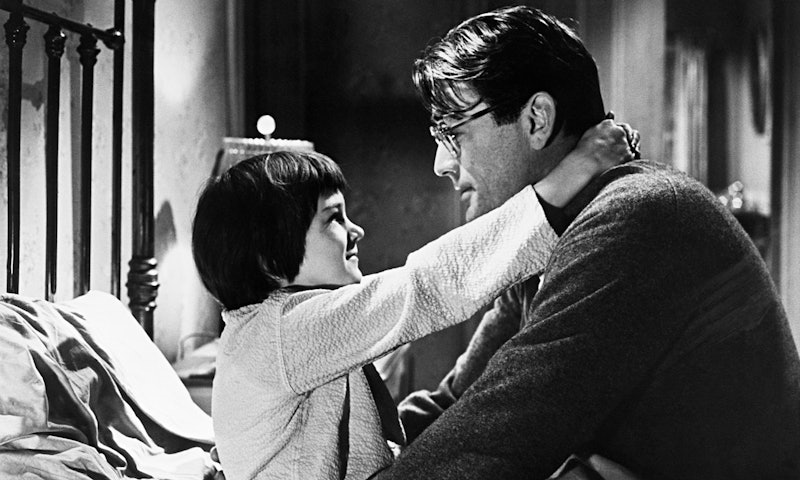
When Go Set a Watchman, the sequel to Harper Lee's To Kill a Mockingbird comes out on July 14, there will be parts that come as an unpleasant surprise. Publications such as The New York Times , Washington Post , and TIME have released their reviews, and the general consensus is that Atticus Finch isn't who we thought he was. The book shows a new side of Scout's dad, and it's very different from the one we saw while reading Mockingbird in our high school English classes. If you, like me, remember Atticus as a forward-thinking hero who sought justice for all, it'll be a tough pill to swallow.
Watchman picks up twenty years after the events of To Kill A Mockingbird, in spite of the fact that it is actually an earlier draft of the classic American novel. (Flashbacks in Watchman were the inspiration for Mockingbird.) Scout, now 26 and going by her given name, Jean Louise, returns home to visit her father not long after the Supreme Court's Brown v. Board of Education ruling. Once back in the fictional town of Maycomb, Ala., she's forced to confront the fact that her father isn't a paragon for equality after all.
The Times calls Watchman "a blunt and unsparing look at a young woman’s disillusionment at the racism that permeates her hometown and her family," and honestly, it sounds like it will double as the disillusionment of fans. The novel reveals that Atticus was previously involved with the Ku Klux Klan and has joined a council fighting against desegregation. It's a far cry from the noble lawyer we saw staunchly defending a falsely accused black man who no one else would take on as a client in Mockingbird.
According to the Post's review, Scout also seems to buy into some of Atticus' theories about whites being at the top of the racial hierarchy, so in spite of her progressive feminist leanings, she's not perfect either. Sadly, the takeaway from the book, according to TIME, is that "people often cannot change." I choose to believe that people can change, and my hope is that Watchman can contribute to the reinvigorated discussion of racial equality and justice that's going on in America.
The book's release was always controversial, so I won't be surprised if there's more outcry about how it shouldn't have been published in the first place. It's the catch-22 for sequels: as much as we want more of what we love, there's also the risk that we won't like what comes next.
Image: Universal Pictures